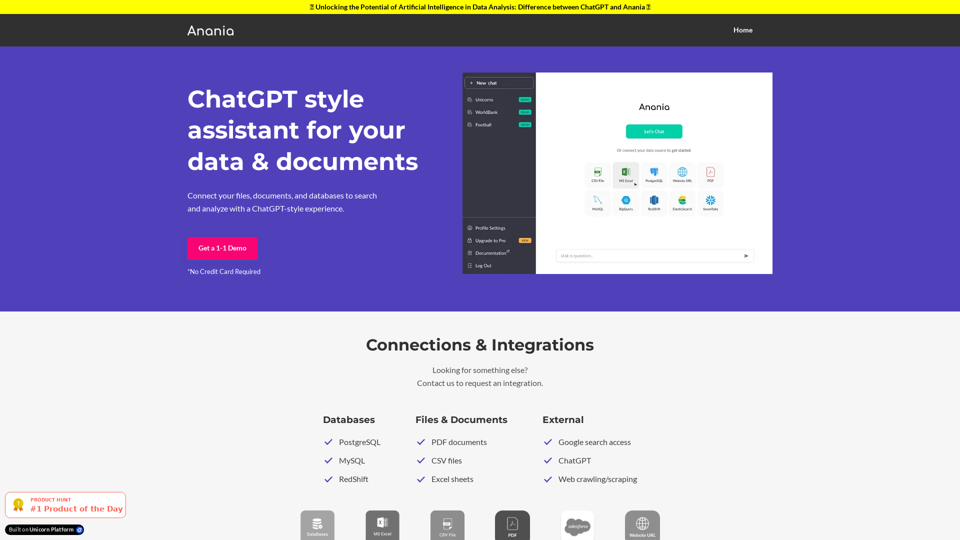What is Anania?
Anania is a ChatGPT-style assistant for your data and documents, allowing you to connect your files, documents, and databases to search and analyze with a ChatGPT-style experience.
Features of Anania
Text to SQL
Use Anania to translate English questions to SQL queries.
Data Visualization
Create Interactive charts to understand your data better.
Security
Analyze your data while keeping it secure on your servers.
OpenAI Integration
Enhance your experience with custom ChatGPT prompts.
Multi-modal
Analyze both structured and unstructured data, all in one place.
On premises version
Use Anania on your own premises and behind your firewall.
How to Use Anania
No setup, no configuration required. Connect your data and start analyzing in seconds.
Pricing and Integrations
Anania provides API access and UI white labeling solutions to integrate Anania into your product. Schedule a meeting to learn more about embedding analytics.
Helpful Tips
- Use Anania to revolutionize decision making with generative AI.
- By 2024, 50% of the largest low-code/no-code development tools will provide “text to code” functionality in AI suites. (Gartner)
- By 2025, 90% of the material in quarterly reports will be synthetically generated. (Gartner)
Frequently Asked Questions
Can I integrate Anania into my product?
Yes, you can use our API to integrate Anania and empower your product with embedding analytics.
Is there any setup process for using Anania?
No setup process is required. You just need to connect your datasource to Anania, and that's it.
Can Anania process big data?
Absolutely. The AI engine behind Anania can process both big and semi-stractured datasets.
How does Anania understand my question?
Anania is using generative AI system which enables it to understand the human language and intent, translate text to SQL based on the connected dataset and produce analytical results.
How you guarantee my data privacy?
We store data on well-established cloud servers by Amazon or SalesForce. The users who are particularly concerned about data privacy, they can use our DB connection in which case we will only access metadata, not the data itself.
